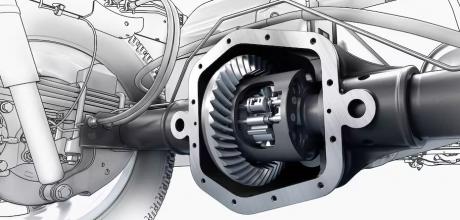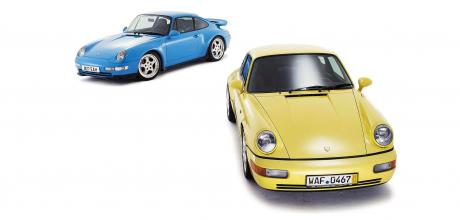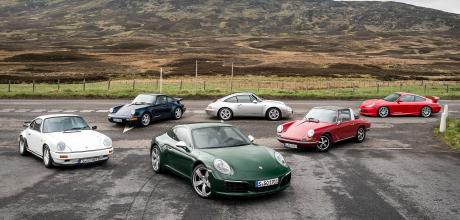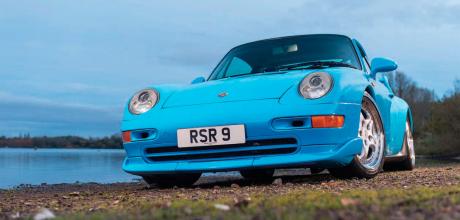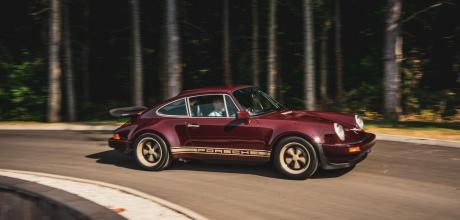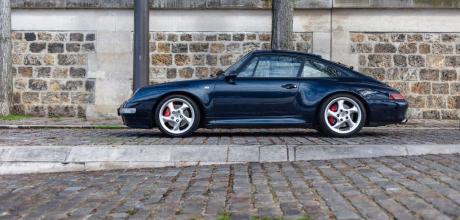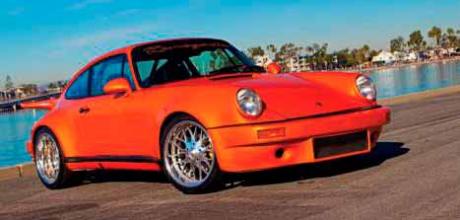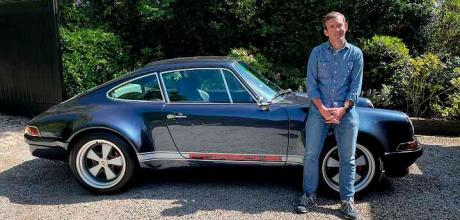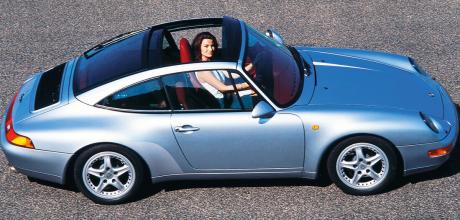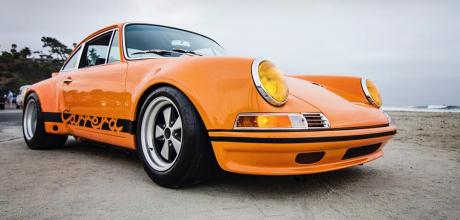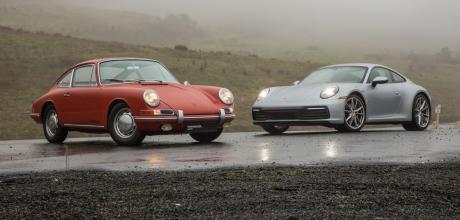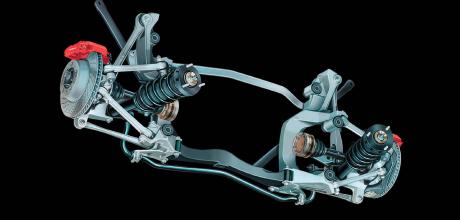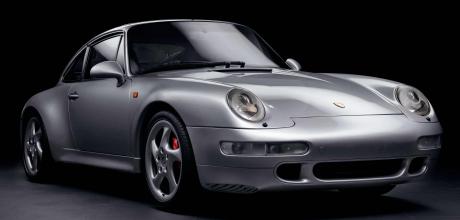 Porsche 911 993 · Blog
Porsche 911 993 · Blog
We’ve all heard the terms ‘Diff’ and ‘LSD’, or may even recognise the option code 220 for a limited slip diff, but what is a differential and how does one work? We start by understanding why drivetrains use them. Drive a 911 around a radius, and the outer wheels will travel further than the inner wheels. A diff is a geared device in an axle – front, rear but sometimes between axles, too – that permits the opposing output shafts to rotate at different speeds relative to each other.
Porsche 911 993 → Sales debate - is inflation making customers think twice about a Porsche purchase?
Sales debate - is inflation making customers think twice about a Porsche purchase? With the past year seeing consumer price inflation rising to well over 10 per cent, we might wonder if such record numbers affect the used Porsche market. So do they? “No,” says Paragon’s Jason Shepherd. “I don’t really see a link between inflation and values. They’ve levelled off, but there doesn’t seem to be anything to create too much downward pressure.
Philip Raby, of Philip Raby Specialist Cars, points out it can be hard to identify trends, but he notes a definite run on 993s of late. Unusually, he’d had four in, and had so many enquires that he could have sold them again and again. “People were almost fighting over them,” he says. Avi Tandon of Garage Sportique backs that up, noting demand for 964s and 993s. “90s air-cooled cars, particularly manual C2 Coupes, are in demand, but finding those with low mileage is quite tricky,” he says.
Porsche’s patented VarioRam system is an ingenious way to alter geometry of the induction manifold according to engine needs under different operating conditions. Here’s how it works… Words Shane O’Donoghue Photography Adrian Brannan NOW WE’RE TORQUINGVarioRam is the name Porsche gave to its advanced variable intake system when the technology was first released in 1994.
The 993’s historical journey is well known. Peter Falk, the famed Porsche engineer, produced a Lastenheft in the late 1980s that found the incoming 993 would have to achieve new levels of agility and responsiveness – not to mention refinement – and so the new 911 was born with its multi-link rear axle and six-speed transmission, among other improvements.
Britain voted to leave the EU in 2016. Despite ongoing wrangling, the general consensus is that Brexit is indeed done. What impact has that decision and the many economic changes had on the 911 market? Sales debate“That’s an interesting topic,” says Jonathan Ostroff, sales manager at Hexagon Classics. “Brexit hasn’t affected the UK right-hand drive car values, as they were never very sought after by our EU partners (excepting Eire, Cyprus and Malta),” Jonathan rightly points out.
Porsche 911 993 → Sales debate - is demand for modified Porsche 911s high, or does originality rule?
There are seemingly endless models and factory options to choose from along the timeline of 911 production. Yet that variety only just begins on the dealer spec list. What of cars that have been altered over the years since they left the showroom? From rat rods to restomods, ‘Big Reds’ to RSR wings… you name it, someone will have done it over 50 years of fashions. Is there a market for a modified 911 today, or is originality best? Paragon sales manager Jamie Tyler says yes and no.
Porsche 911 993 → Man & Machine - Martyn Luke Starlight’ based on a 993-generation manual 1994 Porsche 911 Carrera 2
Lucky 13 This unique 911 backdate became one man’s lockdown obsession My name is Martyn Luke, and this is my 911 backdate, which is nicknamed ‘Starlight’. It’s based on a 993-generation manual 1994 Porsche 911 Carrera 2, and was built by a Yorkshire-based company called 911 Retroworks. It’s a bespoke build that they call a 993 GTR. I commissioned it in April 2021, during lockdown. It took 13 months to build, is the 13th 993 GTR built by the company, and was delivered on Friday 13 May!
Interest and enthusiasm for owning a 911 of any era has never been greater. Everyone knows and covets an RS, GT3 or Turbo, keenly eyeing values and ads, but aside from those go-tos, which models are currently overlooked by the market? Sales debateIt’s fair to say our panel struggled to immediately call out a list of forgotten models. In today’s market, there’s a buyer for all 911s.
You can thank the gorgeous 1973 Carrera 2.7 RS for kicking off this fabulous look, swiftly followed by the RSR in ’74. By adding a little more metal these cars could carry more rubber, meaning better handling and faster lap times. The aesthetics? Almost a happy by-product. When the 911 Turbo burst on to the scene in 1975, complete with wings, wheels and spoilers, the die was cast for almost all range topping 911s to have a more ample derriere.
Porsche 911 993 → Has the pandemic changed the buying habits of those in the market for used Porsche 911s?
It would be naive to think that global lockdowns and disruptions from a pandemic wouldn’t bring with it some changes, but has it left a mark on the used 911 buyer? Two respected specialists concur it has. Sales debate“Yes, buyers’ habits certainly changed,” says Jamie Tyler of Paragon. “A lot more people are buying remotely now; this has continued from the days of only being able to buy cars via ‘click and collect’.” For that to thrive, stock must be of a quality to support worry-free purchase.
The 993’s multi-link rear suspension brought more than just improved comfort, says Alisdair Cusick In addition to marking the end of the air-cooled era, the 993 introduced one standout development: its multilink rear axle suspension. For the first time, the rear axle of a 911 was capable of steering inputs. The origins of the technology date back to 1977 with the 928. Until then, rear suspension was commonly a semi-trailing arm setup, whereby two arms connect to the body with two rubber bushes.
Mixing a wide body with traditional rear-wheel-drive, the 911 Carrera S is a highly desirable 993. Here’s your complete dossier of information on this collector’s gem. Written by Kieron Fennelly. Photography by Damian Blades. Buyer’s Guide Porsche 911 Carrera S 993 AIR-COOLED HISTORY AND TECHIn Porsche nomenclature, ‘S’ usually denoted sporting or ‘Super’ and its first application to a 911 was in 1966. The 911S would set the standard as the fastest 911 until the 2.


